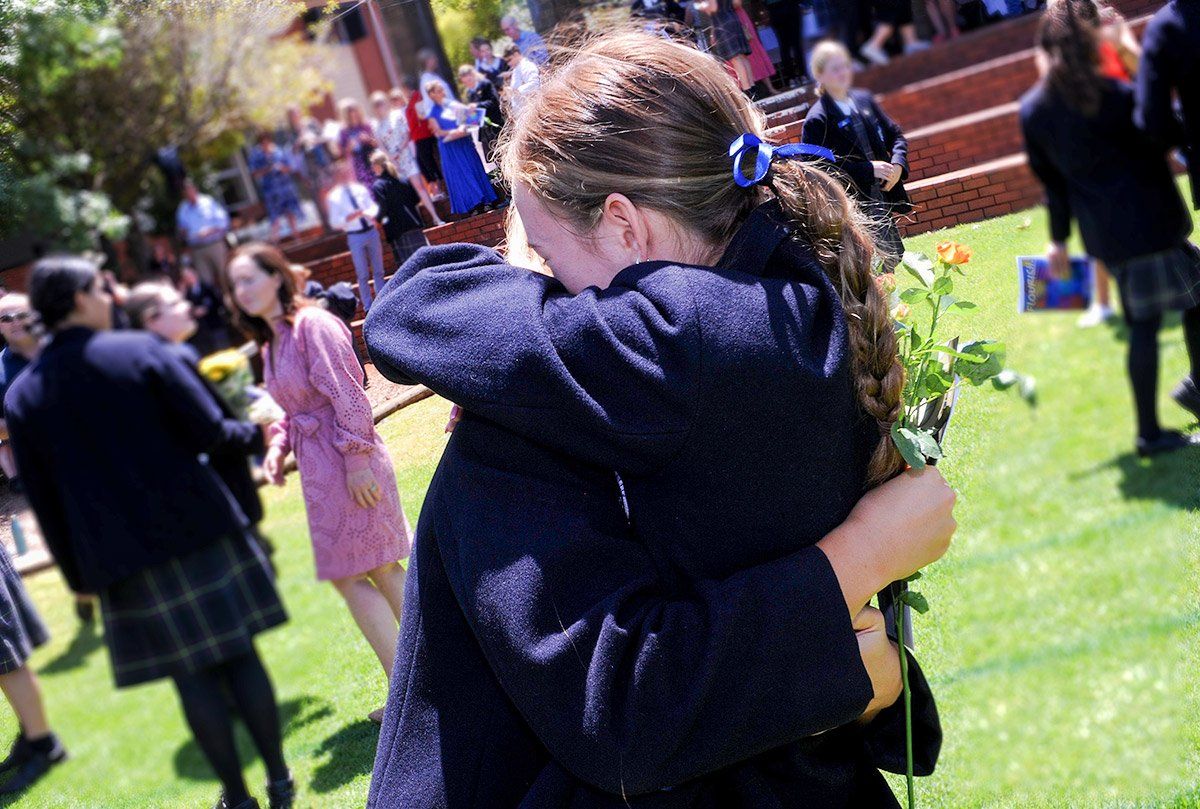Bitter/Sweet
Our Year 12s are in exam mode and letting go mode. Their Â鶹ÊÓƵjourney is almost complete, and with it, for many of us, a deep sense of the bittersweet. After all, schools are but a stopping place, there is always a moving on, farewells, letting go. Each year, we take a deep breath and say our goodbyes to another cohort, to girls we have journeyed with … some for as long as fifteen years. The quantum leap from the child who didn’t want to lie down during sleep time: the one who cried whenever her parent left her at the kindy to the young woman feasting on her independence is immeasurable. Inevitably, there have been dips and inclines and rocky obstacles that have forged this moment … and, it is … bittersweet.
Writer, Karell Roxas (2021) captures this feeling when she reminds that as parents we have 18 summers together with our children. Eighteen long beach holidays, perhaps, or eighteen Christmas trees with early morning present-giving, eighteen camping holidays with fights over tent placement … eighteen. Best to savour each one. After that magic eighteen, holidaying often continues together, but it’s different, your role as a parent is different and it feels different too: simultaneously liberating and poignant. After all, our job, to some extent, is to become redundant.
Such is the role of a school, isn’t it? To become redundant. To ready our school-leavers to explore new, broad challenging pathways and for them to be confident in the traverse – looking forward and never back. It is a bittersweet privilege to be made redundant. Though, even in the parting of ways there are threads and remnants that aren’t easily or ever entirely severed. They are the ones to reach out to and hold on to when the warp and weft of life unravels a little, or a lot. They are the gossamers – almost invisible to the eye but stronger than one can imagine. They can hold us firm in times of unsettledness.
Importantly, the way we view the dips and inclines and rocky obstacles that lead us to this moment of departure and future, matters a great deal. Finishing well is a cliched phrase of mine because it captures truth. How we finish lays the foundation for how we begin the next phase, and the one after that. Author, Shauna Niequist reminds us that there are a whole lot of ways to tell the story of this foundational time in one’s life.
How we tell our story, how we represent our experiences and how we see ourselves within those experiences, has a profound effect upon the next stage of our journey. Interpretation of our foundations is the lens from which we view what lies next – be that a wide or narrow angle or a close up or long shot: it matters.
It would seem, in the transition of moving from school to the world beyond, that the pendulum swings somewhat haphazardly within this binary, from jubilation to distress … and every emotion in between. Letting go, is rarely an easy task – not if the things we let go of, have meaning or significance. For some, its fifteen years of friendships, for others it’s the safety of a boarding house routine and for others it’s been the opportunity to grow … For staff, we watch the process with fascination, each with our own individual experience of the bittersweet. Eighteen summers can feel like a lot or just a few: best always, to savour each one.
Dr Linda Evans | Principal
References
Roxas, K. (2021). May 25, 2021. Published on mother.ly
More News



More News…







